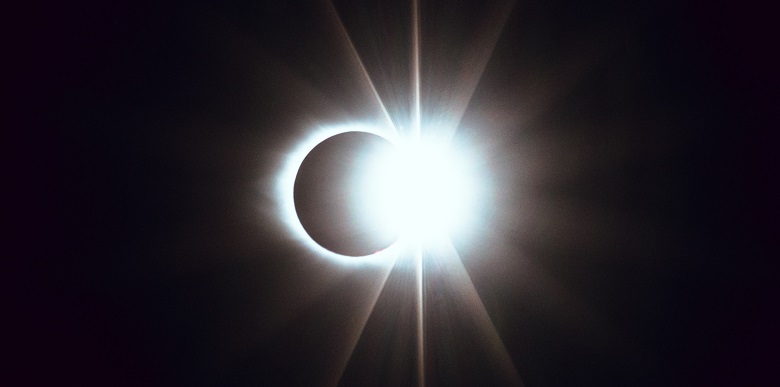Dallas College is hosting admission-free eclipse watching events at all seven of our main campuses for the total solar eclipse — happening Monday, April 8. Bring your friends and family to one of our campuses for this fun and educational event. (Specific event locations for each campus is listed below.)
Resident Dallas College science faculty eclipse experts will be available at each location to answer questions and hand out free eclipse viewers. We have invited Dallas College astronomy and physics professor Heather Appleby to answer our most pressing questions about this upcoming historic event in Dallas.
What is a solar eclipse?
A solar eclipse happens when the moon moves in between the Earth and the sun. This creates a shadow that blocks the sunlight from reaching a small part of the Earth. This only happens rarely because the moon’s shadow often moves just above or below the Earth as it orbits.
What is the difference between an annular eclipse and a total eclipse?
An annular eclipse happens when the moon is too far away from Earth to block out the entire sun. This causes a ring, or annulus, which is where the name comes from. It is also called a “ring of fire” eclipse. Because Dallas was not in the direct path of the lunar shadow for the annular eclipse (in October) we didn’t experience the “ring of fire,” but instead a partial (80%) eclipse of the sun.
Which are rarer annular eclipses or total eclipses?
Annular solar eclipses occur every couple of years, but total solar eclipses are so rare that most people do not experience more than one in their lifetime, and some may never have the opportunity. If you remain in Dallas, you will have to wait another 293 years, until 2317. We expect as many as a million people to show up in Dallas to watch the “show” on April 8.
Why do I need special equipment to view the eclipse?
Direct exposure of your eyes to the sun and its ultraviolet radiation during an eclipse can cause retinal burns (solar retinopathy), destroying the cells of the retina (back of the eye). The damage will occur without your knowledge as there are no nerves (or pain receptors) in the back of your eye in the retina where the image is formed. This is why you will need special eclipse viewing glasses or an eclipse viewer. Safe solar viewers are thousands of times darker than regular sunglasses.
Also, don’t try to photograph or watch an eclipse through a camera or telescope, unless you have a special “solar filter.” Without a filter, it is very dangerous to your eyes because optical instruments intensify light. Plus, your equipment may be damaged.
How long will the eclipse last and how long will we be in total darkness on April 8?
The total eclipse (100%) takes place Monday, April 8, 2024, from 12:23-3:02 p.m., peaking at 1:42 p.m. Dallas will have one of the longest durations of totality in the country and will be in darkness for 3 minutes, 51 seconds at the eclipse peak.
Visit NASA Solar System Exploration to learn more about the 2023 annular eclipse.
Eclipse Event Locations
When attending a Dallas College eclipse event, please consider traveling with DART.
Find links below with directions for each campus.
Cedar Valley: Parking Lot S1 in front of Building M
Eastfield: Parking Lot 8, soccer fields and in front of Buildings F & G
El Centro: Founder’s Plaza (West of C Building)
